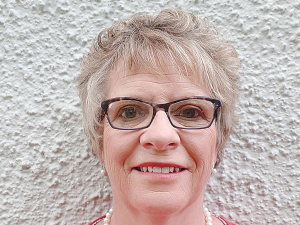Applications Open for 2026 NZI Rural Women Business Awards
Applications are now open for the 2026 NZI Rural Women Business Awards, set to be held at Parliament on 23 July.
 RWNZ national president Gill Naylor claims rural communities are suffering through a lack of access to decent health services.
RWNZ national president Gill Naylor claims rural communities are suffering through a lack of access to decent health services.
Rural communities are suffering through a lack of access to decent health services, according to Rural Women New Zealand.
RWNZ national president Gill Naylor claims the situation is dire and it is time something was done about it.
“The health and wellbeing of rural communities is at risk of further deterioration if something is not done soon to resolve the issues facing people who live, work and play in rural New Zealand,” Naylor says.
“The challenges rural families face with access to health services are just about too many to list on one hand, however, a few that stand out are the lack of rural midwives, lack of rural nurses and GPs, lack of rural mental health services, delays in emergency services such as ambulances and long distances to travel for such services as allied health and cancer treatment.
“Whilst we are pleased to see the Government commit to both a women’s health strategy and a rural health strategy – we [want] to see resource and plans activated to ensure rural women and girls do not miss out on health needs because of their post code.”
RWNZ supports increasing the availability of telehealth but Naylor points out that it will only work where digital connectivity is fit for purpose.
“There are many rural communities without this.
“We know the challenges are because of a mixture of business models which don’t suit rural communities and global challenges with the Covid pandemic, staffing, and training, however, the Government really has to take the lead by resourcing solutions.
“Rural communities are the backbone of Aotearoa New Zealand and deserve equity in the provision of health services.
“RWNZ is looking forward to working with the Government and health providers to ensure that the rural health strategy and women’s health strategy work for rural communities – our lives depend on it,” says Naylor.
The most successful catchment groups in NZ are those that have 'a source to sea' approach.
Associate Agriculture Minister and Manawatu dairy farmer Andrew Hoggard says the free trade agreement (FTA) negotiated with India is not a bad deal and his party, Act, will support it when it goes before Parliament.
Newly released data from Environment Canterbury (ECan) Farm Environment Plan (FEP) audits are showing a dramatic lift in environmental performance across the region.
A solid recovery of global dairy prices this year makes a $9.50/kgMS milk price almost a shoo-in for this season.
As New Zealand marks the United Nations’ International Year of the Woman Farmer 2026 (IYWF 2026), industry leaders are challenging the misconception that women only support farming.
Fonterra’s impending exit from the Australian dairy industry is a major event but the story doesn’t change too much for farmers.
OPINION: Fonterra may be on the verge of selling its consumer business in New Zealand, but the co-operative is not…
OPINION: What does the birth rate in China have to do with stock trading? Just ask a2 Milk Company.